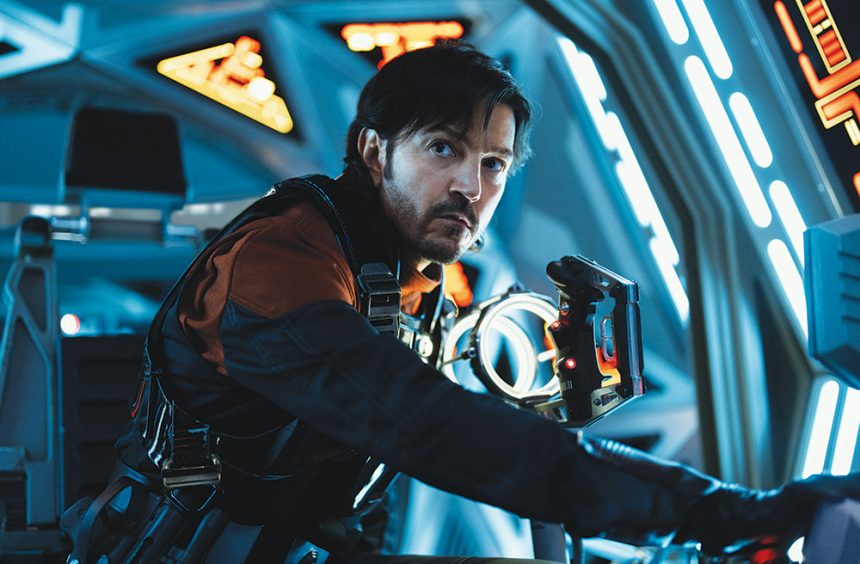Tony Gilroy Says He Can’t See Himself Doing Anything Like ‘Andor’ Ever Again
Over more than 30 years in the business, Tony Gilroy has amassed an enviable list of writing credits that includes Armageddon, Michael Clayton (which he also directed, garnering Oscar noms in both areas), the first four installments of the Bourne franchise (the fourth of which he also directed) and the 2016 Star Wars prequel Rogue One. But “the seminal creative experience” of his life, he says, has been Andor, the Disney+ Rogue One prequel series on which he’s worked for the past six years as creator, showrunner, head writer and EP. (Its second season just received 14 Emmy noms.) And yet he can’t see himself doing anything like it ever again.
How, a few years after Rogue One, did you wind up working on Andor?
I’ve known [Lucasfilm president] Kathy Kennedy for years. After Rogue, she had an appetite to do a prequel around the five years of Cassian Andor before the film. She knew that I knew the character really well, and asked me to look at two different versions that they had. One was cool and slick, but it seemed to me that it was going to run out of road quickly, so I wrote a long email to her, sort of a manic manifesto, about how I thought the show should be built. She was like, “This is pretty mad and undoable, but I see what you’re saying about what we’re doing now.” They tried it again, and then they came back to me and said, “We looked at this memo from a year and a half ago, and it makes a lot more sense to us now. Do you want to do that?”
Did you appreciate how big of an undertaking you were signing up for? At some point the plan shifted from devoting one season to each of the five years, to having the first season cover one year and the second cover four.
You Might Also Like
I had no clue what I was stepping into. I’d been on House of Cards for a couple of years as a consultant for Beau [Willimon]. I’ve made some big movies. But my naivete and idiocy about what this was going to take was staggering to me just six months later. I was going to try to direct, rewrite all the scripts, to do all this stuff — it was ridiculous. Then COVID came. The only thing I saw positively about COVID was that it would kill the show, I thought. But eventually they started to build back up. It was obvious I couldn’t go back to London [where the show was to shoot], so we were going to have to get British directors. I wouldn’t be able to direct, but I would be able to keep writing and run the show. I got into rewriting the scripts and figured out how to run the show from here. By the time dailies started to come in, I was getting very excited about what we were doing. When I got out of quarantine, I went over there [to the U.K.], trying to come up with what we were going to do going forward. By then we knew what the scope of the work was, and Diego Luna [Cassian Andor] and I sat down, and it wasn’t a “choice,” even; we simply would not be able to make a show like this in the way we initially planned. It would go on too long. He’d be too old. People would die. But the solve presented itself very elegantly: the structure that we ended up with the second season.
The appeal of doing Andor, for you, wasn’t anything to do with StarWars as much as it was getting to delve into subjects like fascism and rebellion?
I love history and I’ve been consumed with it my whole life, not in any kind of organized way, just out of curiosity. I’d accumulated all this lumber down in the basement that I didn’t ever think I was going to get a chance to use, but then this show came along. When I started on the show, the parallels between what was happening in the world and what was happening in the galaxy and the Empire — those were already obvious. But over the six years we’ve been doing the show, that little monster got on its feet and learned how to run. When Senator Padilla was pulled out of the ICE meeting, like in the episode about the Ghorman senator being pulled out, there was a big text chain in our group like, “Oh my God. It looked like the show.” It’s very sad for us how much it rhymes.
What made Andor “the seminal creative experience” of your life? Would you ever do this kind of thing again?
I could see doing a limited series or something, but I can’t see doing anything like this again. For five and a half years, every single day of my life, I had a maximally imaginative involvement that was never complete — writing, designing, music, casting, all of it. Every demand on your imagination that could ever be asked was screaming for your attention. That’s a pretty heady place to live. I grew to love it. But I can’t imagine that I would ever be that fully engaged again.
This story first appeared in an August stand-alone issue of The Hollywood Reporter magazine. To receive the magazine, click here to subscribe.


